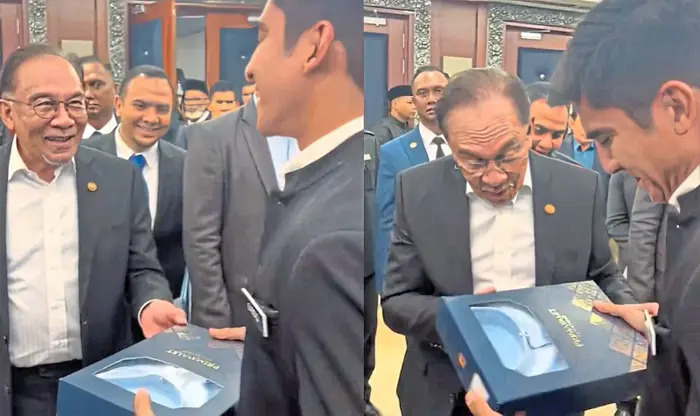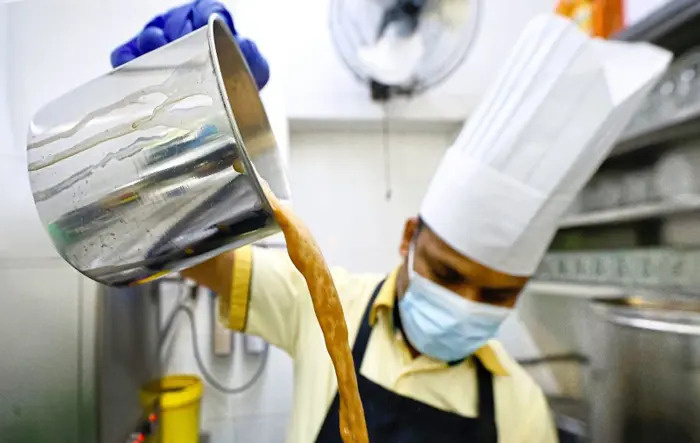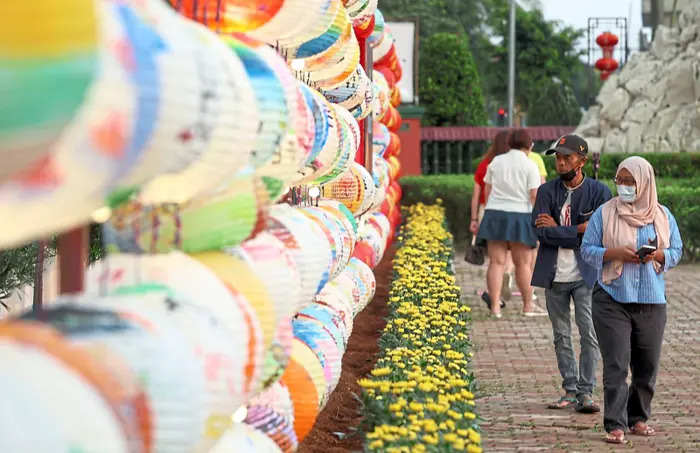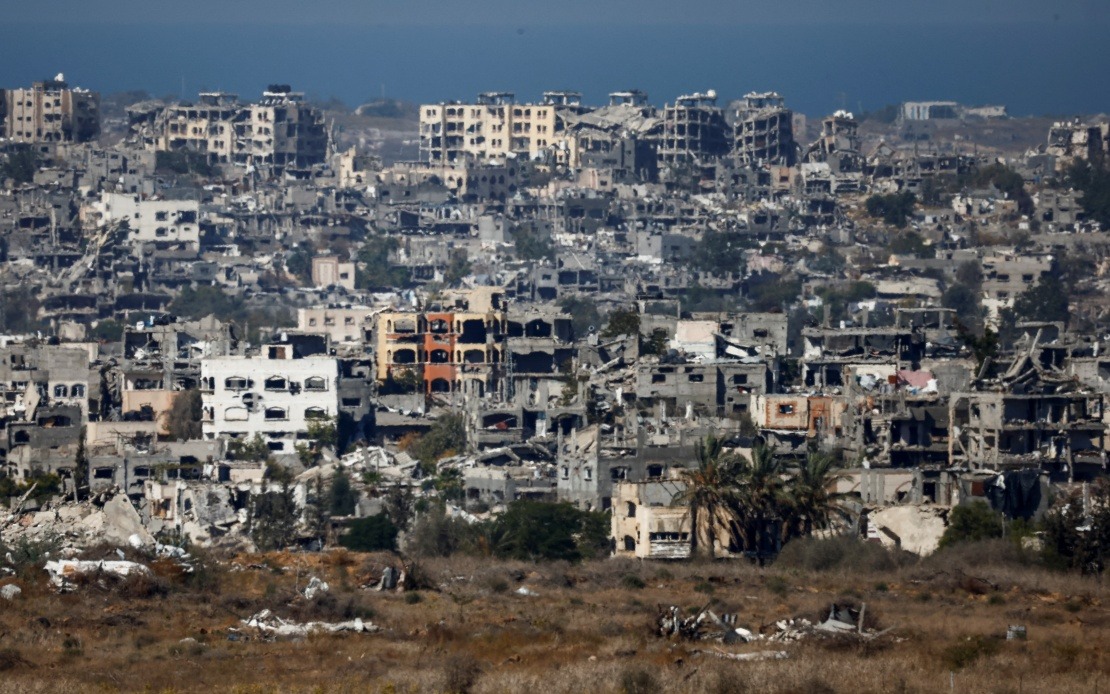
From junior to senior politician: Syed Saddiq presenting Anwar with two pairs of baju Melayu in the Parliament’s lobby recently. — Screencapture from Syed Saddiq’s TikTok account
OVER the past two weeks, I have had the pleasure and honour of joining my Muslim contacts, friends, and family members for buka puasa almost every evening.
I look forward to these get togethers as they reflect how Malaysians of all races are able to take part in each other’s religious and cultural events.
I can vouch that many of our Muslim friends have gone to great lengths to ensure that non-Muslims are seated besides Muslims, and not isolated.
At some functions, I also listened to religious personalities talk about the meaning of Ramadan and its significance, giving reminders on positive values like forgiveness, patience and tolerance.
It reminded me of my time at Universiti Kebangsaan Malaysia as a student when, like other non-Muslims, I had to attend a compulsory course on Islamic civilisation, which was on basic Islam and its history.
Most of us non-Muslim students had no problem with that as applicants were told beforehand that the Islamic course was not optional.
I had the experience of attending classes taught by distinguished scholars such as the late Datuk Dr Haron Din and Datuk Fadzil Noor.
At the recent iftar gatherings, political talk is often avoided, as is unproductive gossip.
But like it or not, as journalists, we always take the opportunity to catch up on current topics, especially with our VIP hosts. It must be tough on these hosts as we journalists never stop asking questions.
Without politics, the hottest topic now has to be the buzz surrounding the relationship between Muar MP Syed Saddiq Syed Abdul Rahman and actress Bella Estillah.
As I am not a gossip or entertainment journalist, I find this topic a little bizarre. Surely there are more important issues to talk about – but it looks like there is no match!
In The Star’s Malay portal, mStar, stories about Syed Sadiq and Bella have garnered millions of views and likes.
Without a doubt, the former Youth and Sports minister has been widely recognised as a young, dynamic figure who has challenged traditional norms in Malaysian politics.
He is good-looking, youthful, eloquent, athletic, well-built and uses social media cleverly, which resonates well with the younger voters.
But his party, the Malaysian United Democratic Alliance (Muda), hasn’t been doing well ever since he left his leadership position following his conviction for corruption, criminal breach of trust and money laundering.
His political future is now uncertain, and his political allegiances are unclear. He is not supportive of the Madani government but he is not exactly endorsing the Opposition, Perikatan Nasional, either.
But as every politician or celebrity knows, it is important to be in the news, positive or otherwise, to stay relevant. And Syed Sadiq certainly is hot news.
Pardon my ignorance, but I have to confess that I had never heard of Bella until recently. It was only when attending a buka puasa with family members in Tawau that I found out that she is a Sabahan.
No wonder our Johor lawmaker has discovered the beauty of Sabah – the scenery and the people. He was reportedly busy handing out goodies in Semporna just about two hours from Tawau that day.
And my family members were engrossed with the story of the couple, a mixture of contemporary political and pop culture, all amplified through social media.
Every bit of these two personalities is being Googled and scrutinised. Politics and entertainment have never been a good mixture, except if you are in India where the two worlds merge and actors go on to become politicians.
Struggling for answers about this phenomena, I turned to ChatGPT and DeepSeek.
ChatGPT says that this is simply a “fresh blend of politics and pop culture” and that “Malaysia is witnessing a cultural shift where the younger generation is increasingly influential in shaping public discourse. This relationship is seen as emblematic of that change.’’
It described these “viral conversations’’ as a result of platforms like Twitter and Instagram, which have “turned their relationship into a trending topic, fuelling discussions about love, modernity, and the intersection of personal and public life”.
DeepSeek has a similar view, describing it as a “crossover of politics and entertainment” adding that “this blend of two different worlds tends to attract media coverage and public curiosity’’.
Even Prime Minister Datuk Seri Anwar Ibrahim has twice ribbed Syed Saddiq over it. Once, he asked Syed Saddiq why he was not in baju Melayu when debating in Parliament, a cheeky reference to commercial photos of the Muar MP and Bella in Malay costumes.
He did it again when Syed Saddiq presented Anwar with two pairs of baju Melayu in Parliament’s lobby.
“Bella needs to be next to me, only then I can wear it,” Anwar quipped in front of the media. A blushing Syed Saddiq replied: “Don’t tease me like that. Give me a chance.’’
The banter continued as Anwar asked if the young politician had any plans to get married.
And it all started with Syed Saddiq saying he had to become a model to promote Hari Raya clothes to raise over RM1mil in donations for his constituency which, he claims, has been denied development funds.
YB Syed Saddiq, if you are reading this, do not forget to include me in the invitation list. I will wear your baju Melayu.















